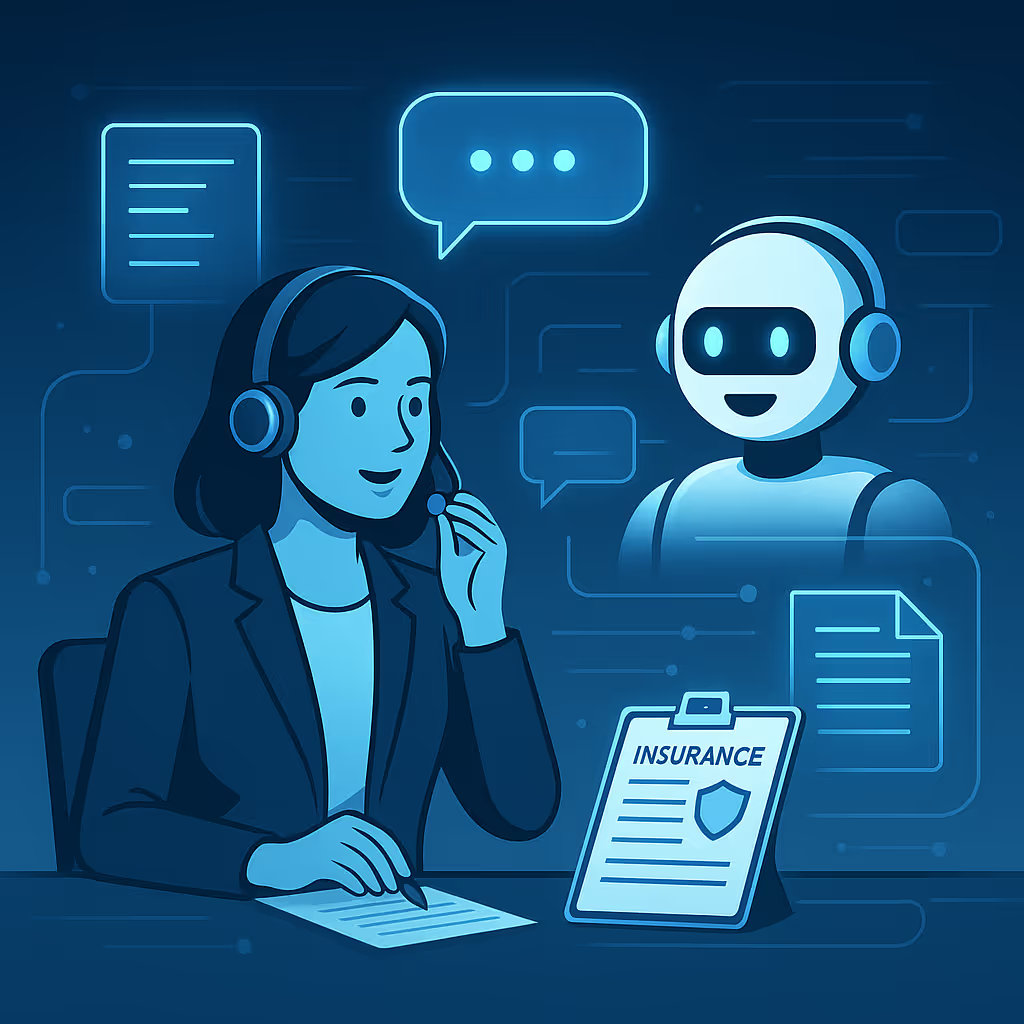The Evolution of Communication: AI-Powered Answering Services
In a world increasingly driven by technology, the way we communicate is undergoing a fundamental transformation. Phone-based campaigns once relied heavily on human operators, leading to inefficiencies and elevated costs. Today, AI-powered answering services are reshaping this landscape, offering businesses across industries the tools to optimize and innovate their communication strategies. This evolution is not just about cutting costs; it's about redefining how businesses interact with their clients while ensuring compliance and enhancing operational efficiency.
The Challenge of Human-Operated Communication
Traditionally, industries such as insurance, healthcare, and logistics depended on human-operated communication channels for operations like quoting, intake, and scheduling. The static nature of Interactive Voice Responses (IVR) systems and manual processes often led to bottlenecks — from missed calls to inconsistent compliance adherence, risking customer dissatisfaction and regulatory penalties. These challenges underscored the need for a more dynamic, real-time solution capable of maintaining the integrity and compliance standards these sectors demand.
Transformative Power of AI Voice Automation
Enter AI voice automation, a technological breakthrough with the potential to revolutionize how businesses manage their phone-based interactions. Fluents, a leader in this space, exemplifies how voice AI can be seamlessly integrated into business operations. By employing AI voice agents that handle both inbound and outbound calls with near-zero latency, businesses can not only enhance efficiency but also ensure that every interaction is backed by audit-ready transcripts.
Consider the case of an insurance company using AI to manage its first notice of loss process (FNOL). By automating these calls, insurers can quickly verify claim details, capture consent, and trigger subsequent workflows — all while adhering to stringent compliance regulations. This elevates customer experience by reducing wait times and personalizing interactions, illustrating how technology can marry efficiency with enhanced user satisfaction.
Operational and Ethical Implications
The deployment of AI in answering services does not come without considerations. Operationally, businesses must ensure seamless integration with existing systems. Fluents, for instance, offers no-code tools and API-driven extensions, facilitating this transition. However, the ethical implications, particularly around data privacy and consent, demand rigorous attention. Each interaction must be transparent and compliant with laws such as GDPR, ensuring that businesses uphold the trust of their customers.
Moreover, the adoption of AI must navigate the delicate balance between automation and human touch. While AI can streamline routine interactions, the need for human empathy remains crucial in more complex or sensitive conversations. Companies must therefore strategize which areas to automate and where to retain human oversight.
Looking Ahead: The Future of AI in Communication
As AI technology continues to evolve, the future of phone-based communication looks increasingly integrated and intelligent. We can expect AI to further personalize customer interactions, developing proactive solutions rather than reactive workflows. For operational teams, this means access to richer data insights, fostering better decision-making and a more agile response to market changes.
The horizon is one where businesses not only adapt to AI-driven solutions but leverage them to gain competitive advantage, ensuring that each call is an opportunity for growth and engagement. In this evolving landscape, industries willing to embrace these innovations will not only enhance their operational efficiencies but will redefine what it means to communicate in a digital age. Fluents and its contemporaries stand at the forefront, paving the way for a future where AI serves as a partner in progress, not just a tool for task automation.
From 10 calls a day to 85,000, Fluents scales with you. Automate globally, integrate deeply, and never worry about your call infrastructure again.

Stay Connected
Check out our latest updates, customer stories, and resources to keep leveling up with Fluents.
FAQs on AI-Powered Answering Services
Here are common questions about AI-powered answering services and their impact.
AI-powered answering services address inefficiencies inherent in human-operated systems by introducing real-time data processing and automation. In industries such as insurance and healthcare, traditional systems often led to bottlenecks like missed calls and compliance issues. AI voice automation, exemplified by Fluents, transforms these processes by integrating voice agents that manage inbound and outbound calls with minimal delay. Businesses benefit from audit-ready transcripts and workflows that are both dynamic and compliant with industry regulations. This reduces wait times and increases personalized interactions. By shifting from static to real-time communication, AI enhances operational efficiency and customer satisfaction, proving especially valuable in sectors where compliance and data accuracy are paramount.
When implementing AI in communication services, companies must navigate key ethical considerations, particularly surrounding data privacy and consent. Transparency in interaction and strict compliance with laws like GDPR are critical to maintaining customer trust. Fluents highlights this need by supporting consent tracking and ensuring that all communications are conducted within legal frameworks. Moreover, businesses must consider the delicate balance between automation and the human touch. While AI can streamline routine interactions, retaining human oversight in more complex scenarios is vital. Organizations should strategically decide which aspects to automate and where nuanced human empathy is required, ensuring that automation aligns with both efficiency goals and ethical standards.
To effectively scale and innovate with AI-powered communication tools like Fluents, businesses should focus on several core strategies. First, integrate no-code tools and API-driven extensions to ensure seamless merging with existing infrastructures. This facilitates rapid scaling without major disruptions. Next, harness multilingual capabilities and predictive data analytics to personalize interactions and derive actionable insights, aligning closely with customer needs. Furthermore, businesses should foster a culture of continuous learning and adaptation, ensuring teams stay updated on technological advancements. By proactively analyzing market trends and customer feedback, organizations can leverage AI not just as a tool but as a strategic partner, driving both operational efficiencies and competitive advantage in the evolving landscape of digital communication.




